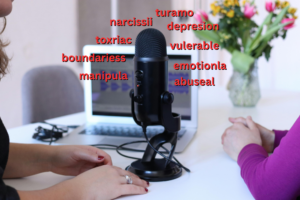Author: Anna Grandusky, MS, LPC-Associate
with Clinical Supervision by Chris Wilder, PhD, LPC-S
- When Faith Becomes Fear: How Religion Can Be Used to Control Childrenby Anna Grandusky, MS, LPC-AssociateReligious control in parenting can blur the line between guidance and harm—especially when used to alienate a child from their other parent. This article explores how spiritual beliefs can become tools of fear, the impact on children, and how to break free from religious trauma.
- What to Do If You’re Living Through Parental Alienation: A Survival Guide for Rejected Parentsby Anna Grandusky, MS, LPC-AssociateParental alienation can feel like a nightmare with no end. Here’s what to do if you’re being alienated from your child—real strategies, validation, and hope, even when things feel impossible.
- Collateral Damage: When Parents Weaponize Love and How to Break the Cycleby Anna Grandusky, MS, LPC-AssociateWhen family conflict turns toxic, kids often get caught in the crossfire. Learn how to recognize parental alienation, avoid damaging relationships, and get the right kind of support.
- How Unresolved Childhood Trauma Shows Up in Your Parenting (And What to Do About It)by Anna Grandusky, MS, LPC-AssociateStruggling to stay calm with your kid? Learn how unresolved childhood trauma affects parenting — and how to break the cycle without drowning in guilt.
- The Mental Load of Parenting: Why You’re Exhausted (Even If You Love Your Kids)by Anna Grandusky, MS, LPC-AssociateYou finally sit down on the couch after a long day, ready to exhale for the first time in hours. But instead of relaxing, your brain starts scrolling through its endless to-do list. Lunches for tomorrow? Check. Pediatrician appointment next week? Need to reschedule. Spirit Week? Crap, what theme is tomorrow again? And before you
- Co-Parenting 101: Say This, Not That (and Keep the Peace for the Kids)by Anna Grandusky, MS, LPC-AssociateParenting is hard. Co-parenting? Even harder. Add in the stress of separation, divorce, and the occasional urge to throw your phone after reading a text from your ex, and it’s enough to make anyone question their sanity. But here’s the thing: co-parenting isn’t about being perfect or pretending your ex doesn’t drive you nuts—it’s about
- The Unseen Battle: How Narcissistic and Borderline Personality Disorders Fuel Parental Alienationby Anna Grandusky, MS, LPC-AssociateParental alienation—a term that sends shivers down the spine of any co-parent navigating the treacherous waters of shared custody. It’s when one parent, intentionally or not, turns their child against the other, fracturing a once-healthy bond. But what’s driving this? Often, the underlying force is a personality disorder, particularly Narcissistic Personality Disorder (NPD) or Borderline
- Stress Responses vs. Personality Traits: What’s Really Going On?by Anna Grandusky, MS, LPC-AssociateWhen you think about your personality, what comes to mind? Are you the life of the party, the quiet observer, or maybe the perfectionist who needs everything to be just right? Now, imagine that some of these traits weren’t just part of who you are, but responses you developed to cope with past pain—pain that
- Parental Alienation Hits Home: A Therapist’s Perspectiveby Anna Grandusky, MS, LPC-AssociateAs a therapist, I talk a lot about parental alienation (PA) and its impact on families. But today, I’m sharing something more personal—my own experience with PA. This isn’t just a clinical concept to me. It’s something I’ve lived through, and it’s part of the reason I’m so passionate about advocating for kids’ rights to
- Breaking Generational Cycles: Healing from Your Own Childhood to Parent Differentlyby Anna Grandusky, MS, LPC-AssociateBreaking free from generational cycles isn’t easy. When you grew up with emotional neglect, perfectionism, authoritarian parenting, or a complete lack of boundaries, it takes real effort to recognize those patterns—let alone stop them in their tracks. But here’s the truth: just because you were raised a certain way doesn’t mean you have to parent
- Emotional Regulation for Parents: How Your Own Reactions Shape Your Child’s Behaviorby Anna Grandusky, MS, LPC-AssociateWhen parents bring their child to therapy, they often say things like, “I just don’t know how to get them to calm down,” or “Nothing I do seems to work.” What they don’t always realize is that their child is watching them for cues on how to regulate emotions. The truth is, emotional regulation in
- The Lifelong Impact of Parental Alienation: How Childhood Trauma Echoes into Adulthoodby Anna Grandusky, MS, LPC-AssociateParental alienation isn’t just a childhood ordeal—it’s a lasting wound that can shape a person’s emotional and psychological well-being for a lifetime. While many recognize the immediate distress it causes for children, fewer understand the deep and enduring effects it has on their adult lives. From struggles with mental health to difficulties in forming relationships,
- The Invisible Battle: How Parental Alienation Drives Fathers to Despairby Anna Grandusky, MS, LPC-AssociateParental Alienation (PA) is a devastating, often misunderstood phenomenon that affects both mothers and fathers, though the impact on fathers, in particular, tends to be disproportionate (Morewitz & Goldstein, 2014). It’s not about picking on mothers—PA is something that can affect any parent who becomes a target of manipulation by an alienating partner. However, it’s
- High-Conflict Co-Parenting: When One Parent Won’t Play Fair (And What You Can Actually Do About It)by Anna Grandusky, MS, LPC-AssociateCo-parenting is hard enough when both parents are reasonable, communicative, and committed to keeping things peaceful for their kids. But when one parent refuses to play fair? When they twist the truth, ignore court orders, or treat co-parenting like a game where the goal is to ‘win’ at all costs? That’s a whole different ballgame.
- Why Your Therapist Can’t Be Your Custody Evaluatorby Anna Grandusky, MS, LPC-AssociateWhen it comes to high-stakes custody cases, emotions are running wild, and everyone’s scrambling to make sure the best interests of the child are front and center. But here’s the thing that might surprise you—your therapist can’t just waltz in and play the role of a custody evaluator. Nope. This isn’t just some rule, it’s
- Understanding Parental Alienation: The Five-Factor Model and Healing Approachesby Anna Grandusky, MS, LPC-AssociateParental alienation (PA) is a painful and often misunderstood experience where a child unjustly rejects one parent, not because of abuse or neglect, but due to the influence—sometimes intentional, sometimes not—of the other parent. This breakdown in the parent-child bond can be heartbreaking, leaving the rejected parent confused, isolated, and struggling to reconnect. Understanding the
- Burnout vs. Depression: How to Tell the Differenceby Anna Grandusky, MS, LPC-AssociateEver found yourself staring blankly at your laptop, willing your brain to function, only to give up and scroll mindlessly on your phone instead? Maybe you’ve hit a wall at work, or maybe even getting out of bed feels like an impossible task. The question is—are you just burned out, or is this something more?
- Am I the Drama? When You’re the One Creating Toxic Patternsby Anna Grandusky, MS, LPC-AssociateWe’ve all been there—sitting with a friend, recounting the absolute injustice of a situation, expecting full support, only to be met with a hesitant, “Well… have you considered that maybe you might have played a part in this?” Cue dramatic gasp. Me? The drama? Never. Except… maybe. It’s easy to spot toxicity in others. That
- The Power and Pitfall of Words: How Overused Psychological Terms Lose Their Meaningby Anna Grandusky, MS, LPC-AssociateIn the age of social media and instant communication, certain psychological terms have entered mainstream conversation—for better and for worse. While it’s encouraging to see people engaging with mental health topics, the casual overuse of terms like “narcissist,” “trauma,” or “toxic” can dilute their meaning and even cause harm. Words have power, and when they’re
- Is Everyone a Narcissist? Debunking Myths and Misunderstandingsby Anna Grandusky, MS, LPC-AssociateThe term “narcissist” has become a buzzword in recent years, often used to describe difficult people or toxic behaviors. But is everyone truly a narcissist? The answer is a resounding no. While narcissistic traits exist on a spectrum and can show up in most people to some degree, a clinical diagnosis of Narcissistic Personality Disorder
- Emotional Regulation in Adults: The Missing Link in Family Dynamicsby Anna Grandusky, MS, LPC-AssociateEmotional regulation is a crucial skill for navigating life’s challenges, but its importance often extends beyond the individual—it deeply impacts the dynamics of families and households. As a therapist, I’ve seen firsthand how emotional regulation, or the lack thereof, shapes the way parents and children interact. In particular, working with children has revealed a recurring
- Enhancing Self-Esteem and Confidence While Managing ADHDby Anna Grandusky, MS, LPC-AssociateLiving with ADHD can sometimes feel like juggling flaming swords—distracting, overwhelming, and definitely not something you want to try while barefoot. While there’s no “cure” for ADHD, the good news is that there are effective strategies for managing the symptoms and making life a little easier. But sometimes, it’s not just about managing the symptoms;
- ADHD in Adults: Why It’s Often Misunderstood and Missedby Anna Grandusky, MS, LPC-AssociateAttention-Deficit/Hyperactivity Disorder (ADHD) is a neurodevelopmental condition that affects both children and adults. While it is commonly associated with hyperactivity and inattention in children, its presentation in adults is often more nuanced, leading to misdiagnoses or being overlooked altogether. Many adults with ADHD struggle with time management, executive functioning, impulsivity, and emotional regulation, often attributing
- How to Be a Better Communicator in Relationships, at Work, and Beyondby Anna Grandusky, MS, LPC-AssociateDiscover practical tips to become a better communicator in relationships, at work, and in everyday life. Learn how to listen actively, resolve conflicts gracefully, and build meaningful connections.
- Should You Use Insurance for Therapy? Exploring the Pros and Consby Anna Grandusky, MS, LPC-AssociateDeciding whether to use insurance to pay for therapy is a big decision for many clients. While it can help make therapy more affordable, the process comes with hidden complexities that aren’t always discussed. For therapists, working with insurance can involve trade-offs that impact not only their practice but also the client’s therapeutic experience. Let’s
- Mental Health Challenges in the Workplace: The Untold Impact of Toxic Culturesby Anna Grandusky, MS, LPC-AssociateWorkplaces are often seen as spaces of productivity and collaboration, yet they can also become sources of immense stress and mental health challenges. Toxic workplace cultures, characterized by poor communication, unrealistic expectations, and a lack of psychological safety, take a hidden toll on employees. This article explores the impacts of toxic work environments and offers
- The Therapy Journey: Why Healing Is Not Linear (And Why That’s Okay)by Anna Grandusky, MS, LPC-AssociateWhen people begin therapy, they often expect things to improve quickly. After all, they’ve made the brave decision to seek help, and they might be hoping that change comes fast. But the reality of therapy is that healing isn’t a straight line—it’s more like a winding road, with some days feeling like progress and others
Wanna read more? Check out the archives below.
Counseling Services for Texas Residents
Parental Wounds | Parenting Struggles | Breaking Generational Cycles | Anxiety | Anger | Depression | Relationship Challenges
All images used in this blog were thoughtfully selected from Pexels.com, a fantastic resource for high-quality and inspiring photography that perfectly complements the themes of our content.
© Bluebonnet Affiliated Counseling Services, PLLC 2025. All rights reserved.
The content on this blog is intended for informational purposes only and is not a substitute for professional therapy. For immediate assistance, please contact emergency services at 988 or 911.


























